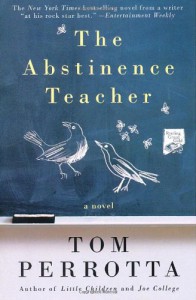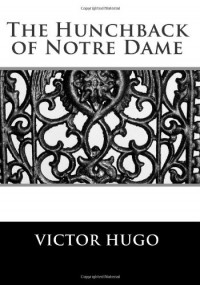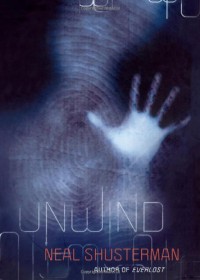TL;DR- The Poisonwood Bible by Barbara Kingsolver is an okay novel that has some interesting characters, but the last 200+ pages are very didactic and unnecessary and take away from the novel as a whole.
So The Poisonwood Bible....I finished it, so it kept my interest. However, I'm having a hard time pinpointing what I liked about it. I guess the first thing to consider is the main thing I look for in a good book: good characters. Each of the characters in the book took turns being insufferable, which I kind of consider a good thing. None of the characters were all wonderful, all the time nor were any all bad. Except for Nathan Price. He was all bad.
Nathan
The only thing we really know about the good reverend, Nathan Price is that he's an arrogant and misogynistic bigot who may be acting out of guilt for being the only man in his unit to survive the war. We don't really know since we don't hear about his military experience from him. We hear about it from Orleanna. I understand Kingsolver's impulse to have only the women speak in the book (giving voice to the powerless, one of many didactic messages from the book). However, I really wanted a chance to examine Nathan's motivations from his point of view since his choices shape a lot of the story and the various characters' lives. He's entirely too one note for me, which made him very uninteresting.
Orleanna
Orleanna is my second least favorite character. Each of her sections were my least favorite sections of the book except for the last hundred pages. That was definitely my least favorite part of the book. More on that later. In the beginning, Orleanna's sections were the most preachy and were less urgent because they're set in the future with Orleanna looking back at past events in the Congo. The other characters' sections are told in present tense as the girls are experiencing the events in Africa. Her sections are also where I feel like Kingsolver tries to use very poetic prose, and it comes off clunky and forced. I almost put the book down after reading Orleanna's first chapter, which starts the book. The portrayals of her in her daughters' narratives are interesting, but of all the characters who were allowed to speak, I found what she had to say the least interesting, closely followed by Rachel.
Rachel
Adah has a line where she says that if Rachel were to go to her high school reunion, she would win the prize for "Least Changed." The girl does not grow at all. I try not to fault her too much because I understand what Kingsolver is doing. Rachel represents the ignorant American who will do anything to not think about how their wealth affects the less fortunate. If they are poor, it's their own fault, not something that she did. Unlike the rest of her family, she refuses to feel guilt over what happened to Africa. What happened there is the Africans' fault and has nothing to do with her. Rachel is very much like her father. He believes that his religion is the one and only way to righteousness and looks down on all who disagree. Rachel believes that the "American way" is the one and only way to live and refuses to change her way of thinking.
Although, it is very telling that she never returns to America.
(show spoiler)
One thing I really hated was the diction Kingsolver gave Rachel. In an attempt to show how less educated and aware Rachel was when compared to her sisters, Kingsolver often has Rachel mispronounce words. Some of them were okay, but some of them were just completely unbelievable for a girl her age. Sometimes I thought I was reading a Ruth May section since the mistakes were more believable for a six-year-old than for a 16-year-old. I understand that it's supposed to show that she isn't very book smart but I think there are more creative ways of showing it.
Adah
I liked Adah only because, of all the characters, she seems to have the most objective view of things. She, of course, goes into her tirades about white guilt, but there's a sort of emotional distance there that doesn't exist in her twin sister, Leah, who is all passion all the time. Her arc of being an angry, self-pitying child and learning to not see her suffering as special was interesting, but I wished it was explored more. Her feeling of abandonment during the fire ant attack is a good example of where this anger works really well.
Ruth May
Ruth May is a child for most of the book so there really wasn't much to say about her. I liked her headstrongness, but again she's a child so there isn't much we can do with it.
Leah
Leah was the most infuriating character of all of them. She starts out my favorite character because she has the most room to grow. She idolizes her father and his ideals even when she sees them continuously fail and sometimes harm the people around her. Watching her grow disillusioned with her father and with God was interesting, but towards the end of the book it becomes page after page of Leah being angry at white people for ruining Africa. I don't disagree with Kingsolver's message. I think her criticism of the U.S's involvement in the Congo is fair. Even though she simplifies the issues a bit, Kingsolver does attempt to show both sides: the ways Africa was harmed by Western involvement and the way it was helped. Leah may rail against America and the rest of Western Civilization, but this doesn't stop her from taking Western medicine to ward off African diseases. I just wish Kingsolver could have been a bit more subtle. The last two hundred pages or more is basically her using her characters to give a history lesson on the Congo and how we f-ed it up. It's 200 pages of history with a little bit of story sprinkled here and there. The last section, Exodus, occurs after the family escapes from Africa, and it really should be half the length it is if that. It was too much of the same thing over and over. I almost gave up, but I finished reading it because I decided I was not going to read 300+ pages of a book and still have to mark it unfinished.
Conclusion
This book definitely has a message, and the last part of the book's purpose is definitely to push that agenda. This book made me appreciate Jean Rhys' Wide Sargasso Sea a lot more. It's a great novel that looks at postcolonialism and doesn't beat you over the head with its agenda.
























![[ The Light Between Oceans [ THE LIGHT BETWEEN OCEANS ] By Stedman, M L ( Author )Jul-31-2012 Hardcover - M L Stedman](http://booklikes.com/photo/max/50/80/upload/books/60/95/44273ff4131c5c740e655548d00636e6.jpg)

